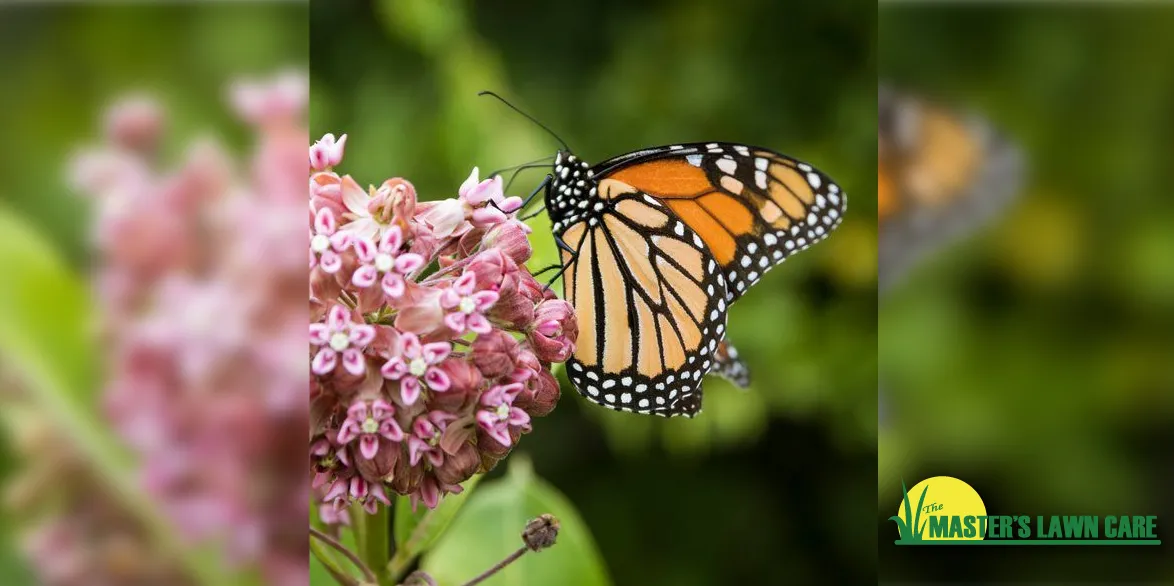Milkweed is the poster plant for pollinator-friendly landscape designs. Not only is it attractive, it's an important nectar source for bees and other insects. Milkweed is also well known for attracting butterflies and serving as a host plant for their caterpillars.
Most famously, milkweed serves as the only host plant for the monarch butterfly.
Milkweed generally grows quickly, reaching a final height up to four feet tall, depending on the species. You can plant them closely, about 18-24 inches apart in most North Florida lawns. And whether or not the milkweed is being installed as part of a butterfly garden, plant multiple plants. Too few and you will be left with leafless milkweed and hungry caterpillars! Planting multiple species can also increase the attractiveness to butterflies and other pollinators in your yard.
Avoid Pesticides
As a host plant for a number of pollinators, use of pesticides on milkweed is discouraged. As a result, expect some aesthetic damage throughout the growing season. Install milkweed behind ground covers or mounding plants to hide the stems but show off the blooms. Monarch caterpillars can consume a plant's leaves quickly, but this usually doesn't cause long-term damage. Aphids also pose a problem. Instead of applying pesticides, keep this pest in check with a blast of water from the hose.
Pruning
It is recommended to prune the milkweed stalks to about 6 inches in height during the fall and winter months to discourage monarchs from establishing winter-breeding colonies. Cutting back the milkweed will also help to eliminate OE spores that may be present on the plant. (OE is a debilitating protozoan parasite that infects monarchs)
Best Growing Conditions:
Most milkweed prefers full sun. They tolerate a wide variety of soil conditions, from clay to sand. Many species used in Gainesville landscaping prefer dry, sandy soil and are moderately drought tolerant.
Water Needs:
With the exception of droughts, you can skip watering. During droughts, keep the flowers blooming with weekly watering. Avoid overhead watering.
Blooming:
Milkweed blooms in summer and early fall, providing a nectar source after the spring blooming flowers are done. In winter it will disappear but will grow back in late spring.
If you’re looking to add this Gainesville Landscape Plant into your yard, please fill out the form above or contact us at (352) 378-5296.


